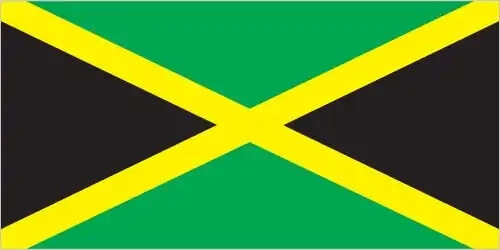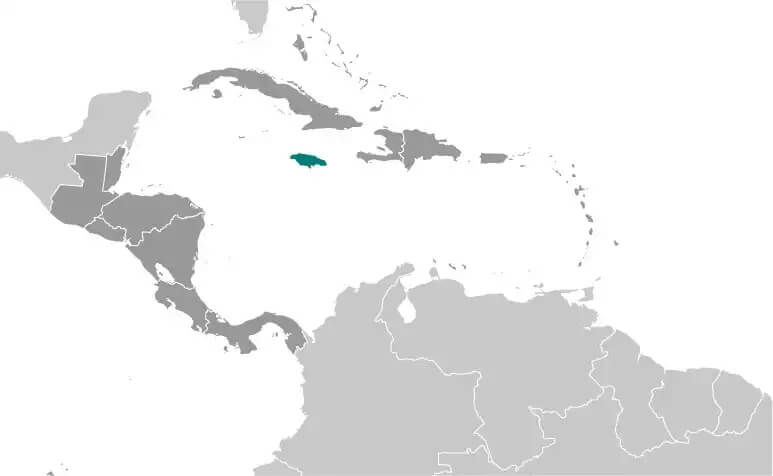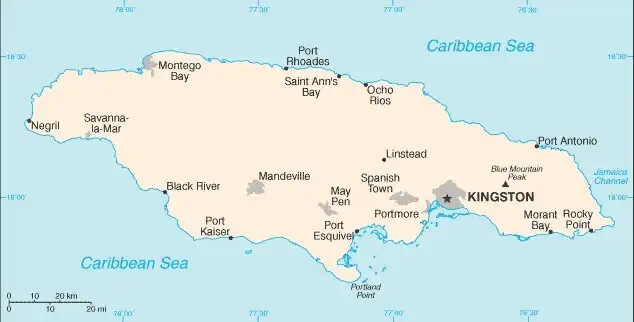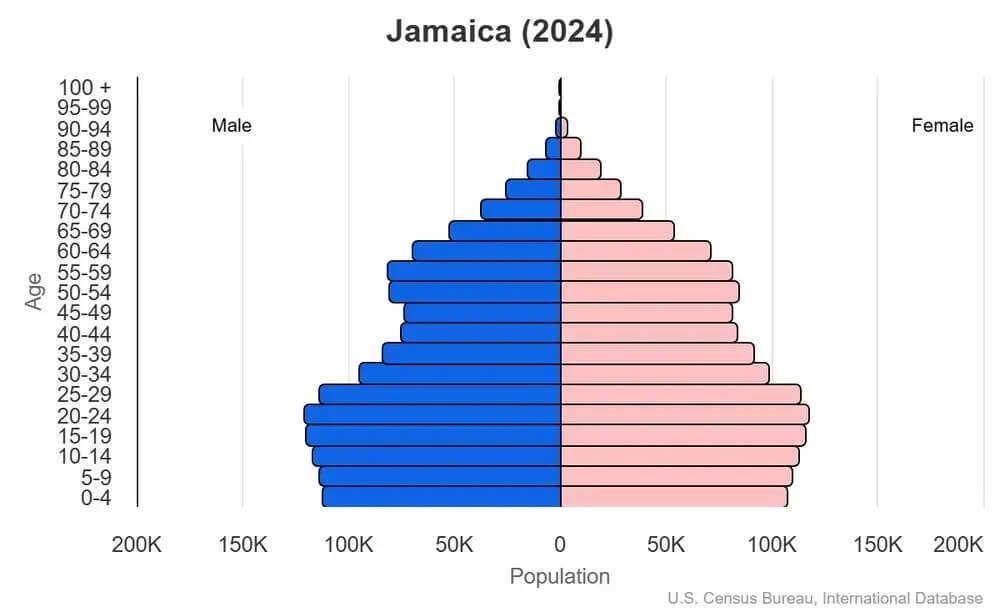World Book
Jamaica
World Book Index
56


With a score of 56, the country is ranked 112th out of 158 countries in the World Book ranking. (more information)
Introduction
Native Taino inhabited Jamaica for centuries before Spanish settlement early in the 16th century. England seized the island in 1655 and established a plantation economy based on sugar, cocoa, and coffee. Jamaica gained full independence in 1962.
Neighboring countries
Cuba - Haiti
Geography
Area
total: 10,991 sq km
land: 10,831 sq km
water: 160 sq km
Climate
tropical; hot, humid; temperate interior
Natural resources
bauxite, alumina, gypsum, limestone
People and Society
Population
total: 2,823,713 (2024 est.)
Ethnic groups
Black 92.1%, mixed 6.1%, East Indian 0.8%, other 0.4%, unspecified 0.7% (2011 est.)
Languages
English, Jamaican patois
Religions
Protestant 64.8% (includes Seventh Day Adventist 12.0%, Pentecostal 11.0%, Other Church of God 9.2%, New Testament Church of God 7.2%, Baptist 6.7%, Church of God in Jamaica 4.8%, Church of God of Prophecy 4.5%, Anglican 2.8%, United Church 2.1%, Methodist 1.6%, Revived 1.4%, Brethren 0.9%, and Moravian 0.7%), Roman Catholic 2.2%, Jehovah's Witness 1.9%, Rastafarian 1.1%, other 6.5%, none 21.3%, unspecified 2.3% (2011 est.)
Population growth rate
0.1% (2024 est.)
Government
Government type
parliamentary democracy (Parliament) under a constitutional monarchy; a Commonwealth realm
Capital
name: Kingston
Executive branch
chief of state: King CHARLES III (since 8 September 2022); represented by Governor General Sir Patrick L. ALLEN (since 26 February 2009)
head of government: Prime Minister Andrew HOLNESS (since 3 March 2016)
Diplomatic representation in the US
chief of mission: Ambassador Antony B. ANDERSON (since 24 July 2025)
Diplomatic representation from the US
chief of mission: Ambassador (vacant); Chargé d’Affaires Scott RENNER (since 13 August 2025)
Economy
Economic overview
upper-middle-income Caribbean island economy; key agriculture and tourism sectors; high crime, youth unemployment, and poverty; susceptible to natural disasters and global commodity price shocks; progress in reducing public debt and moderating inflation within target range
Real GDP (purchasing power parity)
$29.13 billion (2024 est.)
$29.341 billion (2023 est.)
$28.596 billion (2022 est.)
Real GDP per capita
$10,300 (2024 est.)
$10,300 (2023 est.)
$10,100 (2022 est.)
Exports
$7.124 billion (2024 est.)
$7.275 billion (2023 est.)
$6.424 billion (2022 est.)
Exports - partners
USA 37%, Russia 7%, Latvia 7%, Iceland 7%, UK 5% (2023)
Exports - commodities
aluminum oxide, refined petroleum, natural gas, liquor, processed fruits and nuts (2023)
Imports
$9.524 billion (2024 est.)
$9.866 billion (2023 est.)
$9.726 billion (2022 est.)
Imports - partners
USA 39%, China 11%, Brazil 4%, Colombia 4%, Japan 4% (2023)
Imports - commodities
refined petroleum, natural gas, cars, crude petroleum, plastic products (2023)
Human Development Index
The country's Human Development Index (HDI) is 0.720, ranking it 117th out of 193 countries tested. (more information)
World Happiness Report
The World Happiness Report ranked the country 88th out of 158 countries tested with a score of 5.422. (more information)



